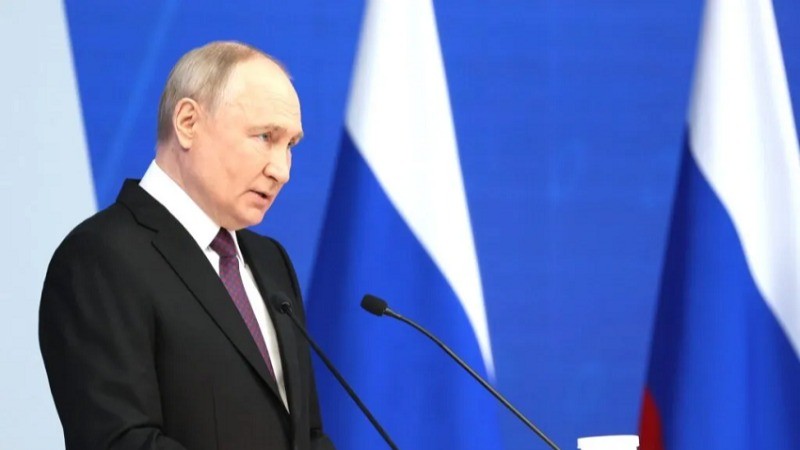
US and UK Delay Decision on Ukraine’s Missile Request Amid Rising Tensions with Russia: On Thursday, Russian President Vladimir Putin warned that permitting Ukraine to use Western-made long-range missiles against Russian targets could trigger a direct conflict between Russia and NATO. Putin said, “So this is not a question of allowing the Ukrainian regime to strike Russia with these weapons or not. It is a question of deciding whether or not NATO countries are directly involved in a military conflict.” He added that Russia would make "appropriate decisions" in response, though he did not detail what those might be.
US and UK Leaders Postpone Decision
Putin’s comments came as UK Prime Minister Keir Starmer and US President Joe Biden met in Washington to discuss Ukraine’s request for long-range missiles, including British Storm Shadows. The leaders decided to postpone their decision on this matter. Starmer said they had a "wide-ranging discussion about strategy," but noted that the meeting did not center on "a particular capability." He mentioned that further discussions would occur at the UN General Assembly in New York in the coming weeks.
Biden Dismisses Putin’s Warning
US President Joe Biden downplayed Putin’s warning, saying, “I don’t think much about Vladimir Putin,” and expressing confidence that "Putin will not prevail in this war." Despite this, Biden is cautious about approving Ukraine’s request for US-made ATACMS missiles. US officials believe these missiles would provide limited advantages and prefer to conserve their stockpiles.
Diplomatic Context and Ongoing Conflicts
The leaders also addressed the ongoing conflict in Gaza. Britain recently halted arms deliveries to Israel over concerns about potential violations of international humanitarian law. The US, a staunch supporter of Israel, has not imposed similar restrictions. Both Biden and Starmer reaffirmed their strong commitment to Israel while stressing the "urgent need" for a ceasefire and better protection for civilians in Gaza.
Russia’s Diplomatic Retaliation
In reaction to the potential supply of long-range weapons to Ukraine, Russia expelled six British diplomats, accusing them of espionage. Russian UN ambassador Vassily Nebenzia warned that such actions could lead to a "direct war with... a nuclear power," further escalating tensions.
Impact of Upcoming US Presidential Election
The situation is also influenced by the upcoming US presidential election. With President Biden’s term nearing its end, the election between Kamala Harris and former President Donald Trump—who has praised Putin and expressed a desire to stop the war without taking sides—could impact US policy on Ukraine. Starmer highlighted that aiding Ukraine remains a critical priority regardless of political changes.
Zelensky’s Appeal for Increased Support
Ukrainian President Volodymyr Zelensky criticized the West for hesitating to support Ukraine's missile defense as it has supported Israel. Zelensky plans to meet with Biden later this month to present his "victory plan" for ending the war with Russia.